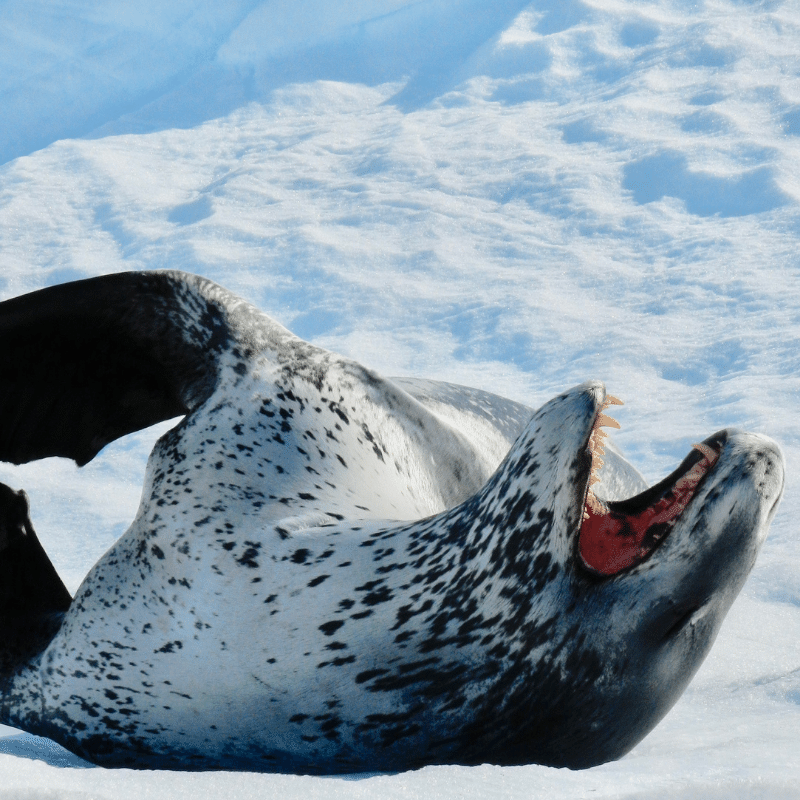Next working day delivery with Royal Mail Tracked 24
Lords of the Sea: The Leopard Seal

Lords of the Sea: The Leopard Seal
In our regular blog feature, Lords of the Sea, we look at the apex predators of the sea - those species who are generally top of their respective food chains. Today, we profile the Leopard Seal, lord of the Antarctic.
The Leopard Seal, Hydrurga leptonyx is so named after its speckled spotted coat. Like the polar bear in the Arctic, the Leopard Seal is the one of the top predators in the Antarctic. The leopard seal is also referred to as the sea leopard, and is the second largest species of seal in the Antarctic - after the southern elephant seal.
Leopard seals can swim at speeds reaching 37km per hour, which is fast enough for them to launch themselves up onto land. Females are the larger of the species, growing up to a whopping 600kgs.
Leopard Seals predominantly prey on other seals, penguins, krill, birds, fish and squid. Leopard seals have unusual teeth for straining krill from the water. They will often hunt alone, so will occasionally be caught and killed by a pod of killer whales - its only natural predator in the Antarctic.
Leopard Seals are not considered endangered however, because their pack ice habitat is largely inaccessible to shipping and human encroachment, so they remain relatively undisturbed.
Males are sexually mature at 3 years of age, while females mature at 2 years. During mating season, females and males make long-distance mating calls to each other. Pregnancy lasts about 10 months with the birth occurring during the Antarctic summer. A pregnant female digs a hole-like den in the ice, a process which can take months, and then gives birth to a single pup.
While attacks on humans are rare, cases of aggression, stalking, and fatalities have been recorded. Leopard seals are known to attack boats, posing an indirect risk to people. Leopard seals are highly dangerous predators and are well-deserving of the moniker, Lord of the Sea.

Photo credit(s): Getty Images / Canva Pro licence.









